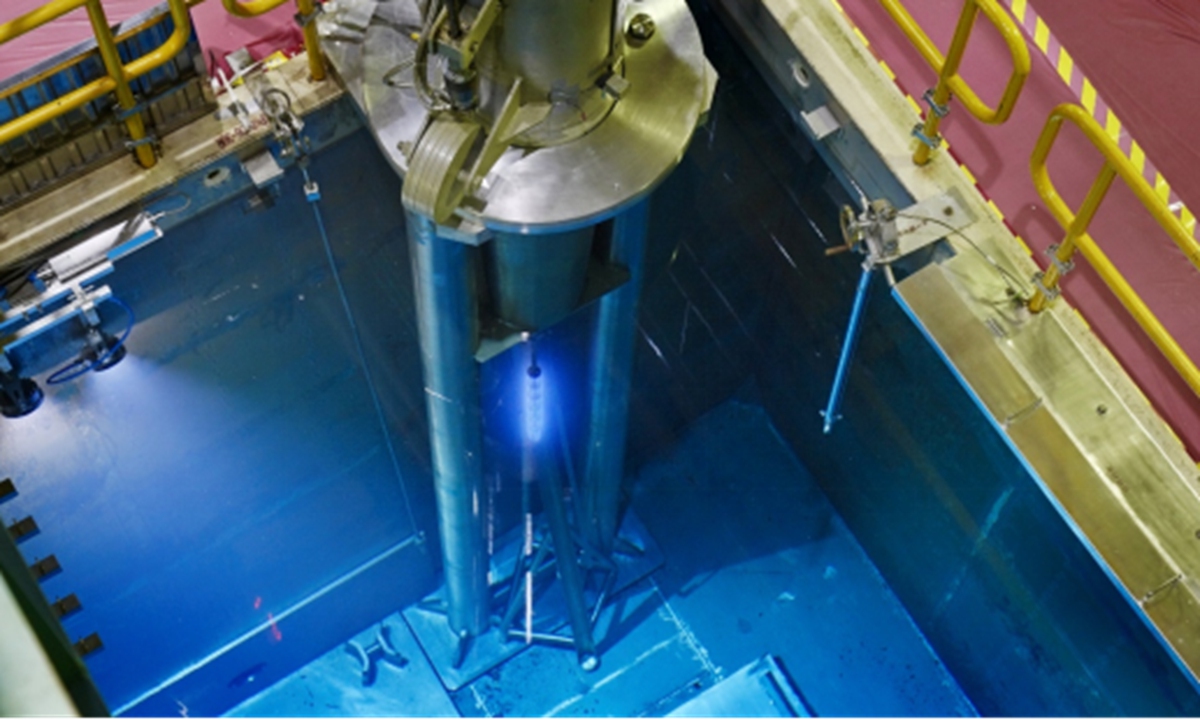
Photo: Courtesy of Qinshan Nuclear Power Plant
China has achieved the mass production of carbon-14 isotopes by using a commercial nuclear reactor, the China National Nuclear Corporation (CNNC) told the Global Times on Sunday.
Experts noted that the domestic production will break an import dependency on carbon-14 isotopes, and has significance for agriculture, chemistry, medicine and biography in the country, sectors that widely use the element in detecting helicobacter pylori and pharmacokinetics research.
The carbon-14 isotope was produced by the Qinshan Nuclear Power Plant in East China's Zhejiang Province, which is operated by a CNNC subsidiary.
Fan Shen, a representative from the power plant, told the Global Times that China's annual demand for carbon-14 isotope used in helicobacter pylori detection is around 40 Curies, the total demand with scientific research is around 100 Curies.
"Qinshan Nuclear Power Plant's production capacity can fully meet the current domestic demand, and the final product of the carbon-14 isotope will be supplied to the market by the end of 2024," Fan said.
China's current carbon-14 isotope supply is heavily reliant on imports, which can be volatile and expensive, and has capped the development of downstream industries.
Chen Zhi, a professor from the School of Nuclear Science and Technology, University of Science and Technology of China, told the Global Times on Sunday that carbon-14 isotopes are widely used in detecting helicobacter pylori and gastric cancer, but are difficult to mass produce.
"As the domestic mass production of carbon-14 isotopes has been realized, the cost of related medical tests and research of some new medicine will be largely reduced," said Cheng, who noted that it will help more people in China to screen gastric cancer and other diseases in advance with lower costs, and prevent the potential "bottleneck" issues.
China's eight top departments on June 2021 issued the mid- and long-term development plan for medical isotopes from 2021 to 2035, which stated to build an independent and stable medical isotope supply system.
In 2020, the Qinshan Nuclear Power Plant vowed to build China's largest isotope production base by carrying out the development of related industries, according to CNNC.
During the production of carbon-14, Qinshan Nuclear Power Plant also launched the mass production preparation for other isotopes including the lutecium-117 and yttrium-90, further upgrading China's supply capability of medical isotopes.